
Каждый год миллионы мусульман стремятся совершить священное путешествие в Мекку. Тем не менее, как и получение билетов на концерт для вашей любимой группы, есть уловка - ограниченная доступность и сложная система распределения.
Перед Саудовской Аравией стоит монументальная задача управления одним из крупнейших ежегодных собраний в мире, обеспечивая безопасность, справедливость и духовное удовлетворение паломников со всего мира.
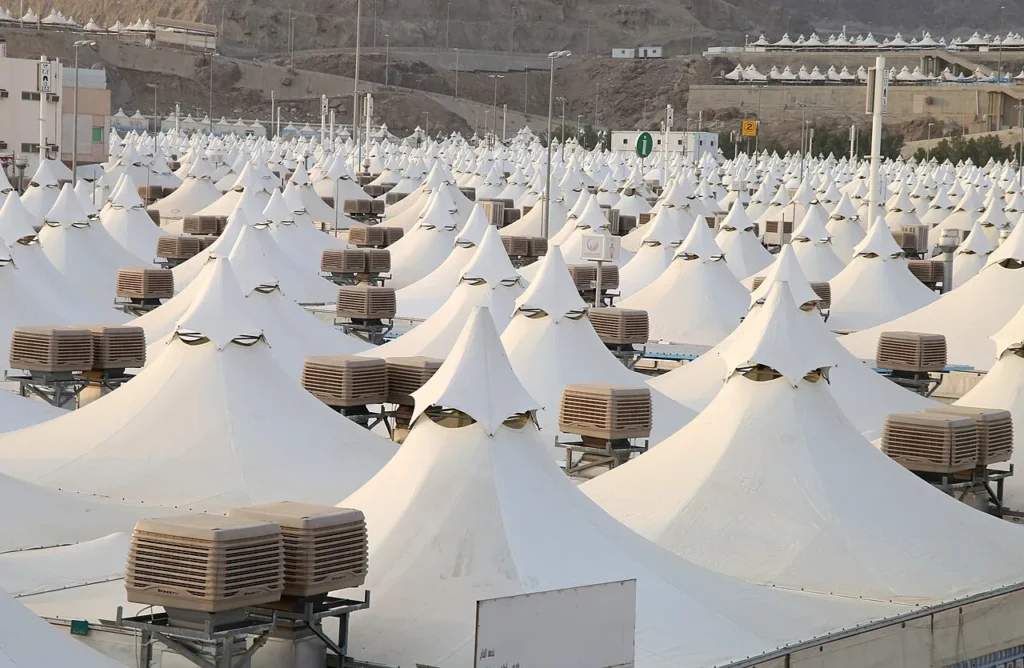 Hajj Pilgrimage Mina Tent City, Мекка; Фото Википедия
Hajj Pilgrimage Mina Tent City, Мекка; Фото ВикипедияСтраны с самой высокой квотой хаджа
Паломничество Хаджа представляет собой один из 5 основных столпов ислама, привлекающий верующих со всех уголков земли к месту рождения их религии.
Однако сам масштаб спроса означает, что власти Саудовской Аравии должны реализовать свои планы. сложная система квотраспределение мест паломничества между странами на основе их мусульманского населения и различных дипломатических соображений.
1. Индонезия
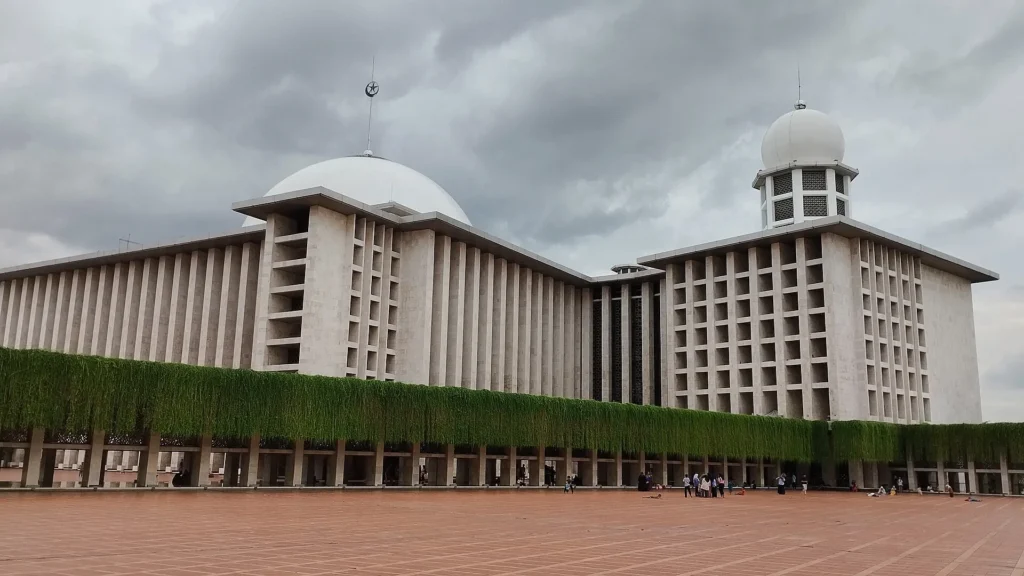 Великая мечеть Истикляль, Индонезия; Фото Википедия
Великая мечеть Истикляль, Индонезия; Фото ВикипедияИндонезия получила самую большую квоту на хадж 221 000 слотов на 2025 годЭто отражает его статус самой густонаселенной мусульманской нации в мире. С более чем 230 миллионами мусульман, составляющих примерно 87% населения Индонезии, существенное распределение имеет смысл.
Система управления хаджем в стране превратилась в одну из самых сложных в мире, с листами ожидания, которые могут растянуться на десятилетия из-за подавляющего спроса.
Индонезийские паломники обычно проходят обширную подготовку перед отъездом, включая религиозное образование, медицинские осмотры и практическую подготовку к физически требовательным ритуалам.
Индонезийское правительство вложило значительные средства в инфраструктуру хаджа, создав специальные терминалы в крупных аэропортах и поддерживая постоянные офисы в Саудовской Аравии, чтобы поддержать своих граждан на протяжении всего паломнического путешествия.
Несмотря на получение самой большой квоты, спрос по-прежнему намного превышает предложение, и многие индонезийские мусульмане ждут 15-20 лет своей возможности совершить хадж.
2, Пакистан
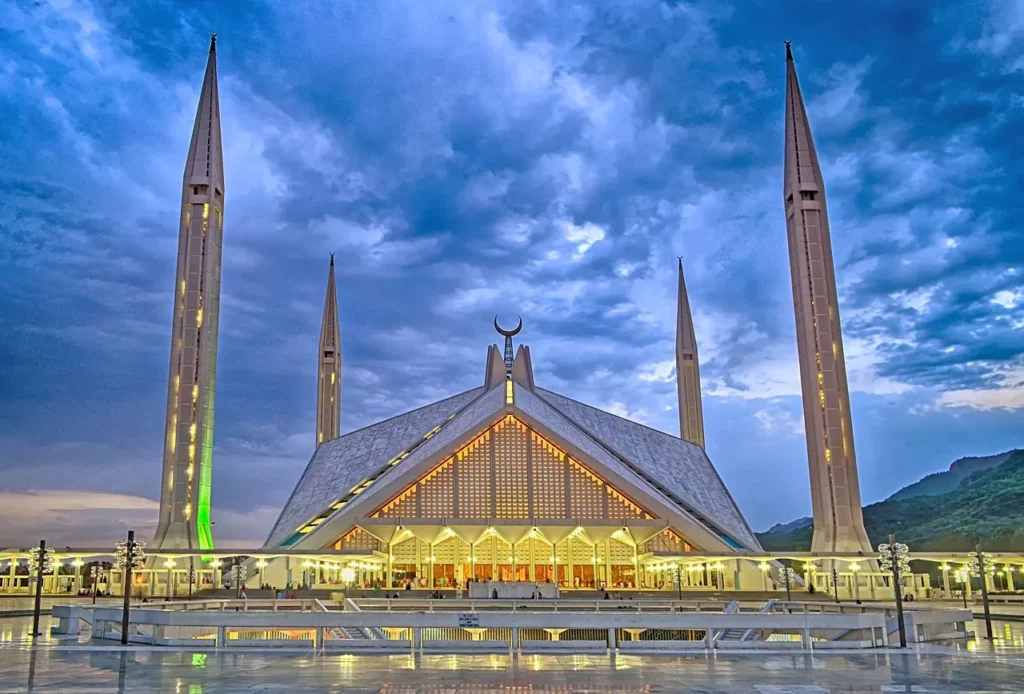 Мечеть Фейсала в Исламабаде, которая является крупнейшей мечетью Пакистана, а также является одной из крупнейших в мире.
Мечеть Фейсала в Исламабаде, которая является крупнейшей мечетью Пакистана, а также является одной из крупнейших в мире.Пакистан обеспечивает второе по величине распределение с 180 000 местами для паломничества, представляя его положение как дома для второго по величине мусульманского населения в мире.
Квота Пакистана, насчитывающая около 220 миллионов мусульман, отражает как его демографическую реальность, так и его исторически прочные отношения с Саудовской Аравией.
пакистанский Управление операциями по хаджу осуществляется через правительственное министерство, которое координирует все: от расписания рейсов до размещения в Саудовской Аравии.
В стране создана обширная сеть поддержки, в том числе пакистанский персонал, размещенный в Мекке.
Пакистанские паломники часто путешествуют организованными группами, создавая чувство общности, которое помогает посетителям впервые ориентироваться в сложных ритуалах и подавляющих толпах.
3. Индия
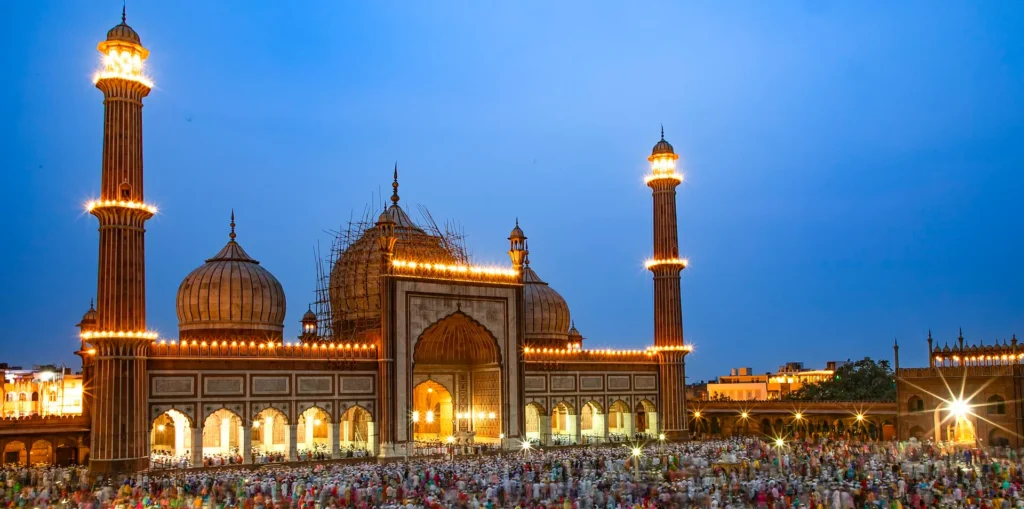 Джама Масджид, Дели, одна из крупнейших мечетей в Индии; Фото Википедия
Джама Масджид, Дели, одна из крупнейших мечетей в Индии; Фото ВикипедияИндия получила 175 025 Слоты для хаджа, вмещающие разнообразное мусульманское население около 200 миллионов человек. Несмотря на то, что Индия является индуистской нацией, в ней проживает одна из крупнейших в мире мусульманских общин, представляющая интересы мусульман. 14% от общей численности населения страны.
Управление процессом индийского хаджа осуществляется через Комитет по хаджу Индии, который действует под контролем правительства для обеспечения справедливого распределения и надлежащего обслуживания.
На протяжении многих лет правительство осуществляло различные программы субсидирования, чтобы сделать хадж доступным для экономически неблагополучных мусульман.
Индийские паломники часто сталкиваются с уникальными проблемами из-за сложных бюрократических процессов в стране, но общественные организации и исламские учреждения предоставляют обширные сети поддержки.
4, Бангладеш
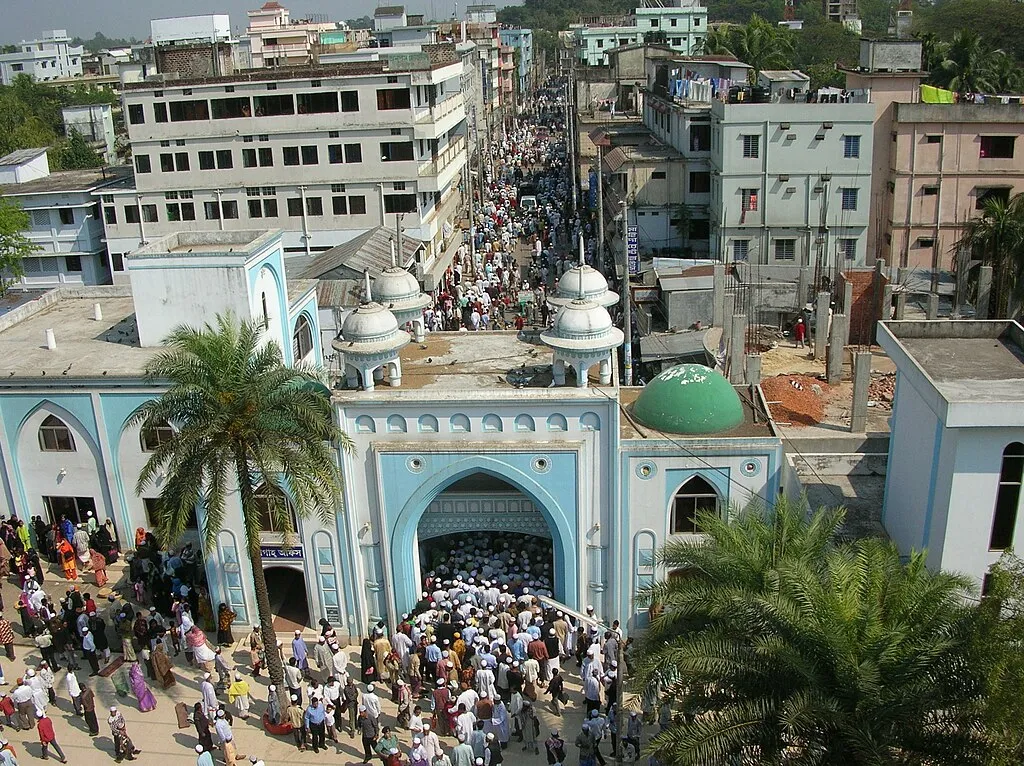 Вход Шаха Джалала Мазара в Силхет, Бангладеш; Фото-Википедия
Вход Шаха Джалала Мазара в Силхет, Бангладеш; Фото-ВикипедияБангладеш поддерживает квоту в 127 198 мест, обслуживая население примерно 150 миллионов мусульман, которые составляют около 90% от общей численности населения страны.
Будучи одной из самых густонаселенных стран мира, Бангладеш сталкивается с особыми проблемами в управлении спросом на хадж, причем приложения из года в год значительно превышают доступные слоты.
Правительство Бангладеш создало комплексную систему управления хаджем, которая включает в себя программы подготовки перед отъездом, скрининг здоровья и помощь в финансовом планировании.
Учитывая экономические проблемы Бангладеш, Многие паломники спасают на десятилетия часто принося значительные семейные жертвы для выполнения этого религиозного обязательства.
Страна установила партнерские отношения с властями Саудовской Аравии для обеспечения надлежащего размещения и поддержки, признавая, что многие бангладешские паломники могут впервые в своей жизни путешествовать по всему миру.
5. Нигерия
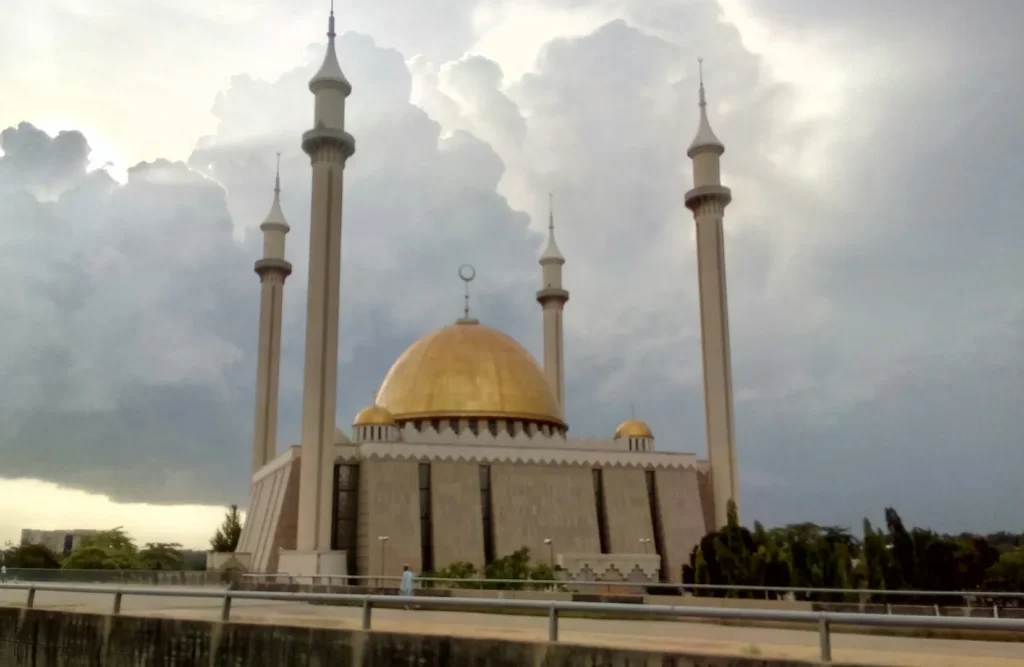 Старый памятник Национальной мечети, построенный в Абудже, Нигерия; Фото Википедия
Старый памятник Национальной мечети, построенный в Абудже, Нигерия; Фото ВикипедияНигерия возглавляет африканское представительство с 95 000 человек Хадж отражает его статус самой густонаселенной страны Африки, где проживает около 95 миллионов мусульман.
нигерийский Управление операциями хаджа осуществляется через комитеты государственного уровня, которые координируют свои действия с федеральными властями и официальными лицами Саудовской Аравии для обеспечения бесперебойной логистики и надлежащей поддержки.
Разнообразие мусульманского населения Нигерии представляет собой уникальные проблемы, поскольку паломники происходят из различных этнических групп, экономического происхождения и уровня международного опыта путешествий.
Власти Нигерии инвестировали средства в комплексные программы ориентации перед отъездом, которые охватывают не только религиозную подготовку, но и практические аспекты, такие как обмен валюты, культурные различия и меры предосторожности в отношении здоровья.
6. Иран
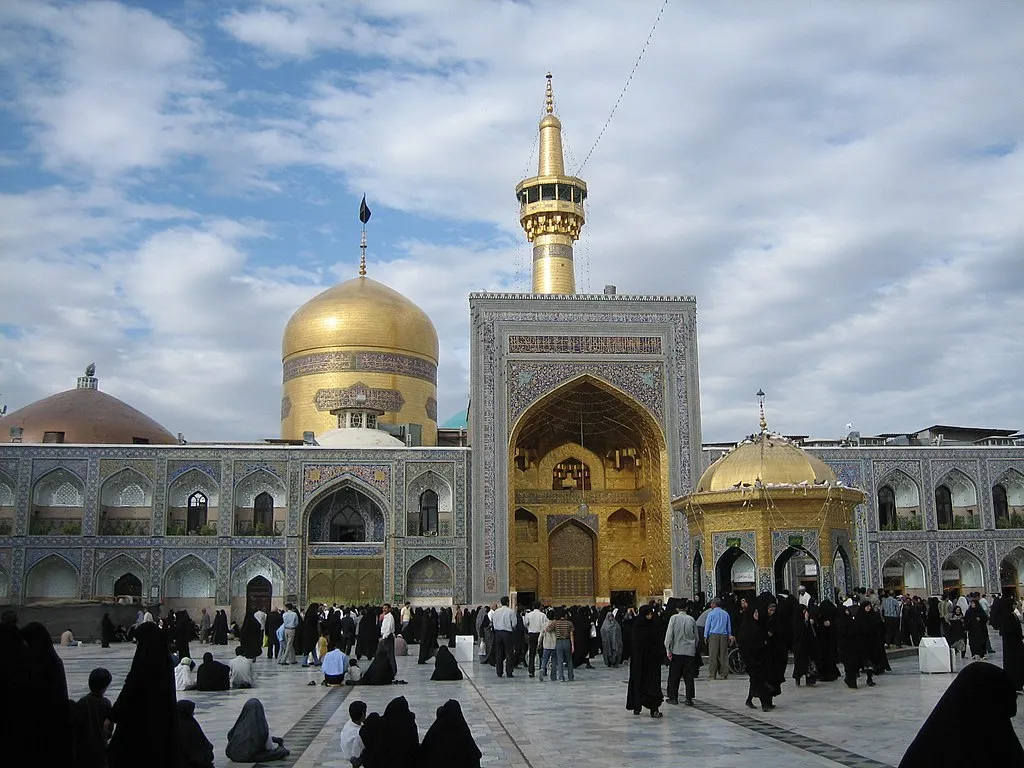 Храм Имама Резы, самый святой религиозный объект в Иране, Мешхед; Фото-Википедия
Храм Имама Резы, самый святой религиозный объект в Иране, Мешхед; Фото-ВикипедияИран получает 87 550 мест для паломничества, что отражает как его значительное шиитское мусульманское население, так и сложные политические отношения между Тегераном и Эр-Риядом.
Несмотря на то, что в Иране проживает около 82 миллионов мусульман, на квоту Ирана влияет периодическая дипломатическая напряженность и различные интерпретации исламской практики между двумя странами.
Иранские паломники часто сталкиваются с уникальными проблемами из-за политических соображений, включая ограничения на определенные религиозные практики, которые важны для мусульман-шиитов, но могут не совпадать с интерпретациями суннитского большинства Саудовской Аравии. Тем не менее, обе страны в целом поддерживают свою приверженность содействию хаджу для иранских мусульман, признавая фундаментальную важность паломничества, которая выходит за рамки политических разногласий.
7. Алжир
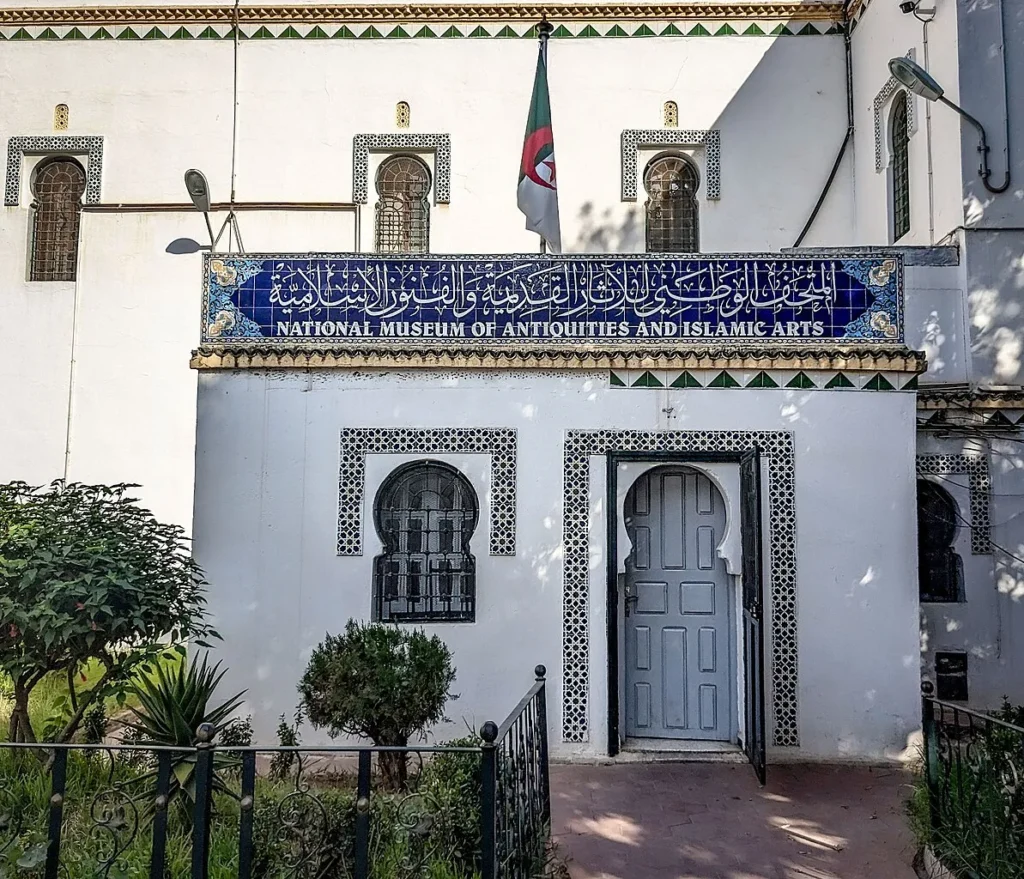 Алжирский национальный музей древностей и исламского искусства, Алжир; Фото-Мухаммед Амин Бенлулу
Алжирский национальный музей древностей и исламского искусства, Алжир; Фото-Мухаммед Амин БенлулуАлжир поддерживает квоту в 41 300 мест для населения примерно 41 миллиона мусульман, что составляет почти 99% от общего населения страны.
Правительство Алжира разработало эффективные системы управления хаджем, которые используют опыт страны в крупномасштабной логистике и ее прочные связи с Саудовской Аравией на арабском языке.
Алжирские паломники пользуются относительно простым общением с властями Саудовской Аравии из-за общего языкового и культурного сходства.
Географическая близость Алжира к Саудовской Аравии также облегчает более доступные варианты путешествий по сравнению с паломниками из отдаленных стран.
8. Турция
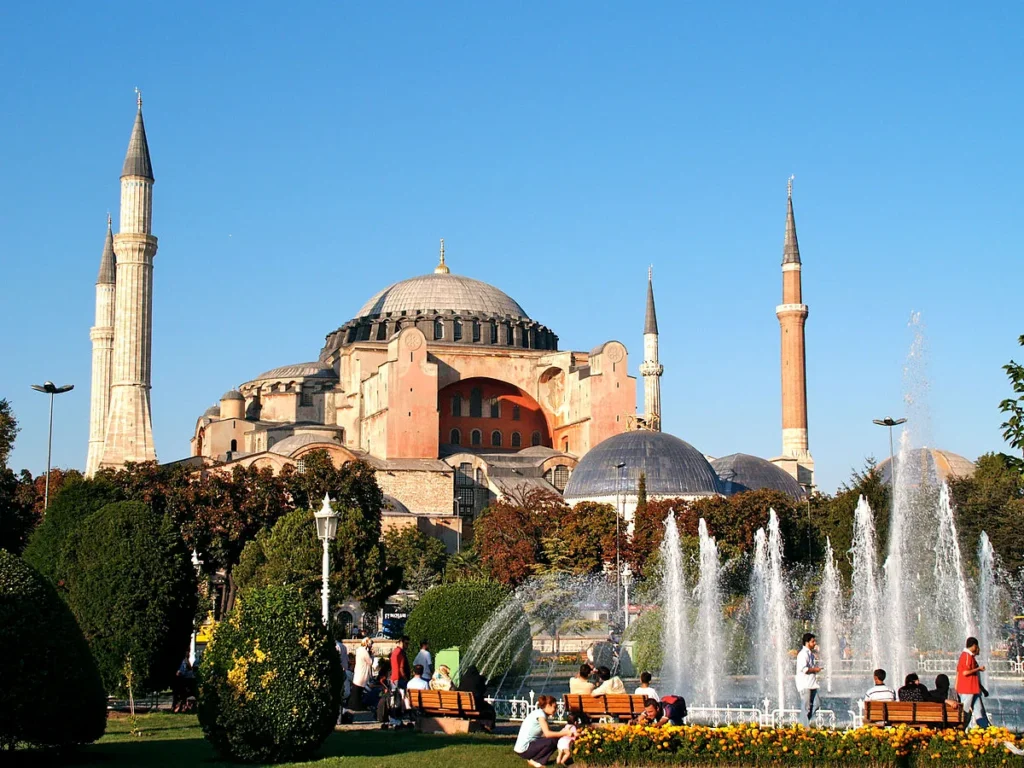 Hagia Sophia, Стамбул, Турция; Фото Дэйва Проффера; Wikimedia Commons
Hagia Sophia, Стамбул, Турция; Фото Дэйва Проффера; Wikimedia CommonsТурция получила 37 770 Хадж слоты, обслуживающие население около 84 миллионов мусульман, которые представляют около 99% населения страны.
Уникальная позиция Турции, соединяющая Европу и Азию, в сочетании с ее историческим значением в исламской цивилизации, дает турецким паломникам особый взгляд на хадж.
Турецкие власти разработали сложные системы поддержки, которые включают выделенные чартерные рейсы, варианты проживания премиум-класса и комплексное страхование. Сильная экономика страны также означает, что многие турецкие паломники могут позволить себе более качественные услуги, что в целом способствует положительному опыту во время их паломнического путешествия.
9. Египет
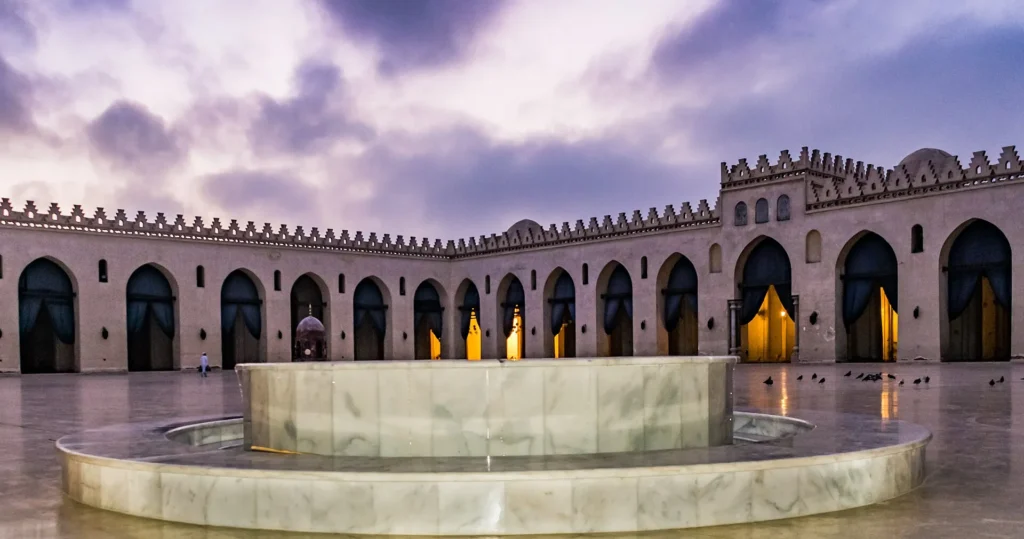 Мечеть Аль-Хаким в Каире, Египет; Фото Википедия
Мечеть Аль-Хаким в Каире, Египет; Фото ВикипедияЕгипет получает 35 375 мест для паломничества, в которых проживает около 95 миллионов мусульман.
Будучи самой густонаселенной арабской страной и домом для университета Аль-Азхар, одного из самых престижных институтов ислама, Египет имеет особое значение в исламском мире, которое выходит за рамки простого населения.
Египетские паломники часто служат неофициальными гидами и переводчиками для других арабоязычных мусульман из-за широкого понимания их диалекта во всем арабском мире.
Египетское правительство использовало свои прочные дипломатические отношения с Саудовской Аравией для обеспечения всесторонней поддержки.
10. Судан
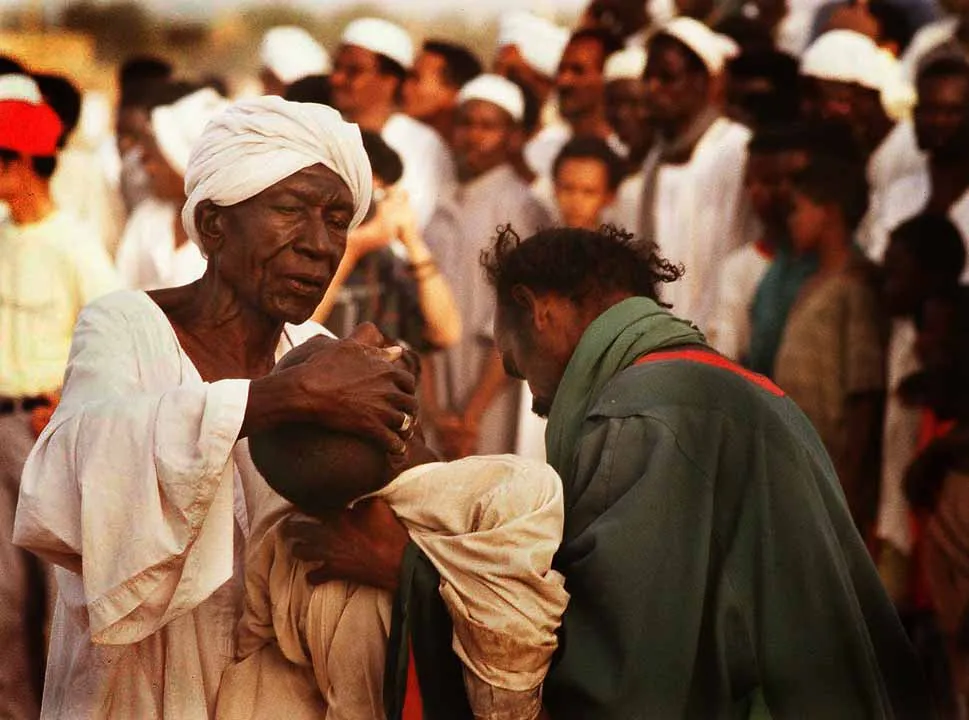 Суфийский ритуал в Судане: фото Википедия
Суфийский ритуал в Судане: фото ВикипедияСудан сохраняет квоту в 32 000 мест, несмотря на значительные политические и экономические проблемы в последние годы.
С учетом того, что примерно 39 миллионов мусульман составляют около 97% населения Судана, относительно скромная квота отражает как практические ограничения, так и продолжающиеся внутренние трудности страны.
Суданские паломники часто демонстрируют замечательную решимость в завершении своего хаджа, несмотря на экономические трудности и политическую нестабильность в стране.
Правительство Судана при содействии исламских организаций и диаспор работает над тем, чтобы финансовые ограничения не мешали верующим мусульманам выполнять это религиозное обязательство.
Много суданских паломников экономить в течение многих лет или полагаться на поддержку сообщества чтобы позволить себе путешествие, делая их паломничество особенно значимым и эмоционально значимым.
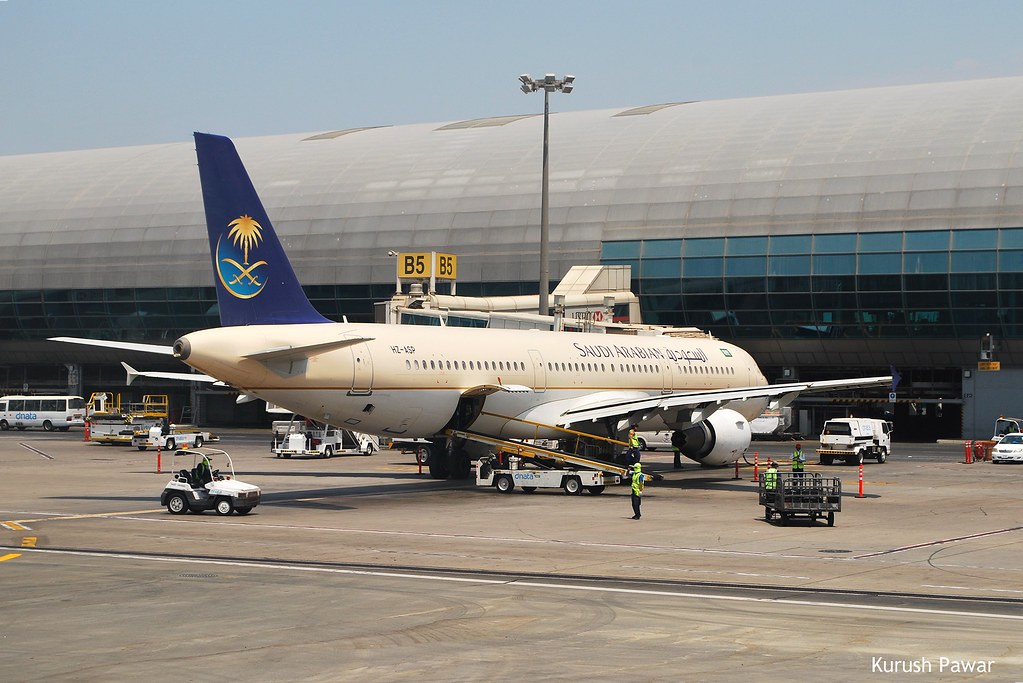 Фото: HZ-ASP | Регистрация: Авиакомпания HZ-ASP: Авиакомпания Саудовской Аравии... | Flickr
Фото: HZ-ASP | Регистрация: Авиакомпания HZ-ASP: Авиакомпания Саудовской Аравии... | FlickrНижняя линия
Управление крупнейшим в мире ежегодным религиозным собранием требует дипломатической тонкости саммита Организации Объединенных Наций в сочетании с логистической точностью военной операции.
Система квот на хадж представляет собой попытку человечества сбалансировать духовные устремления с практическими ограничениями, гарантируя, что мусульмане со всех уголков земного шара могут участвовать в этом преобразующем путешествии.
Поскольку миллионы людей продолжают мечтать о своем паломничестве в Мекку, эти квоты служат как воротами, так и привратниками к одному из самых глубоких духовных переживаний в жизни.
Оставайтесь с нами. Следуйте за нами в социальных сетях для последних обновлений.
Присоединяйтесь к нам в Telegram Group для последних обновлений авиации. Следуйте за нами в Google News
Emirates добавила еще 46 рейсов в Хадж и Ид
Пост 10 стран с самой высокой квотой паломничества в мире впервые появился на Aviation A2Z.











